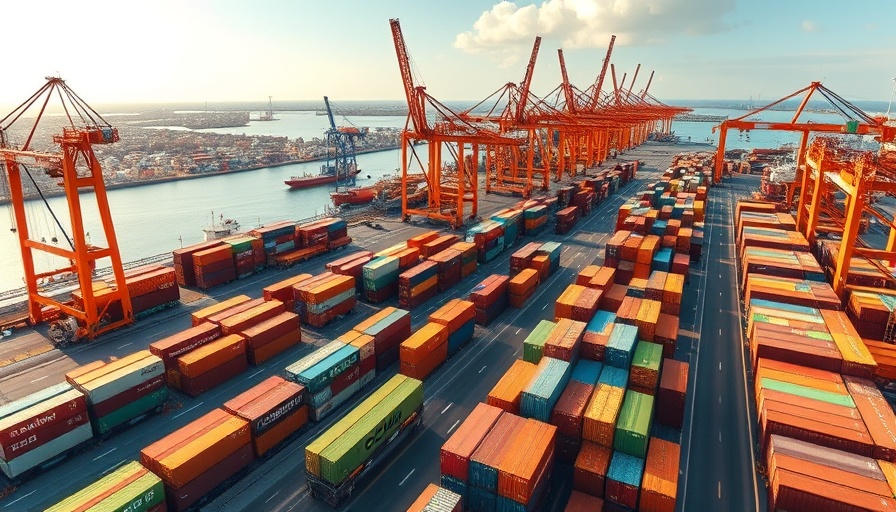
Understanding the 30% Tariff: A New Challenge for South Africa
As of August 2025, the United States has implemented a staggering 30% tariff on certain goods from South Africa. This significant jump from the previous 10% rate impacts not only trade relations but presents unique challenges for South African businesses, especially in the tech sector. While the bulk of exports to the U.S. consist of metals and agricultural products, the new tariff introduces substantial hurdles for tech startups and companies that do export physical products.
Impact on Tech Startups: Navigating the Tariff Hurdle
Despite the South African tech scene being underrepresented in U.S. exports, the new tariffs have created a ripple effect. Entrepreneurs in AI, fintech, and blockchain technologies must adapt quickly. Companies that provide physical goods such as hardware are now under pressure to optimize costs, explore flexible manufacturing options, and potentially increase prices to remain competitive against countries like Mexico and China. For software and cloud service providers, who are somewhat insulated from tariffs, the focus may shift toward enhancing service delivery without direct penalties.
Government Response: Seeking Solutions and Support
The South African government remains proactive, hoping to reduce or mitigate these tariffs through negotiations. On July 31, it submitted a Framework Deal to the U.S., aiming to cultivate stronger trade relations. The government is also developing a support plan for affected businesses which might include financial assistance and strategic guidance for innovation. This move not only aims to alleviate the immediate impact of tariffs but also helps to future-proof the South African tech landscape.
Broader Economic Implications: Future of African Technology
This developing situation highlights the importance of adaptability for African startups in the global market. As tariffs evolve and trade dynamics shift, the need for local innovation becomes critical. Understanding how these external pressures affect the landscape will empower tech entrepreneurs to innovate and strategize effectively. Although U.S. tariffs are a significant barrier, they may also catalyze a new wave of innovations as companies find new pathways to establish their presence globally.
Conclusion: The Road Ahead
The pain inflicted by the 30% tariff can serve as a call to action for South African tech startups. By leveraging this challenge, they can strengthen their foundations, innovate, and enhance their competitive stance in the international market. Engaging effectively with government initiatives and exploring innovative solutions will be crucial for growth in the coming years.
 Add Row
Add Row  Add
Add 


Write A Comment